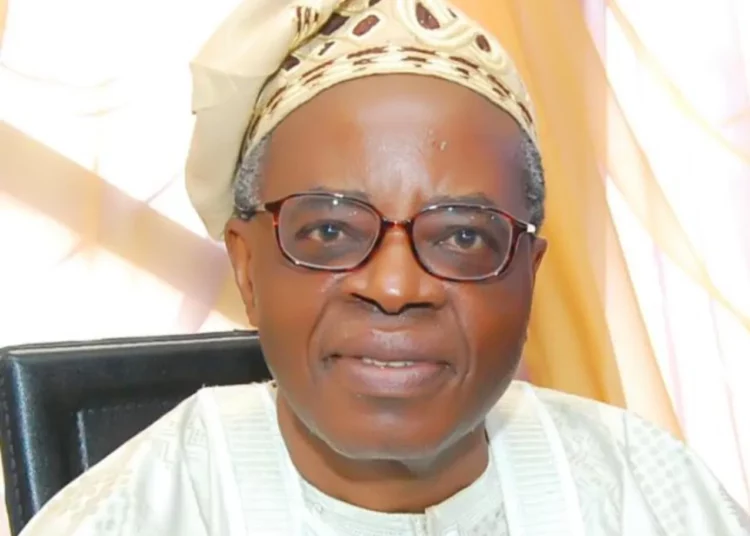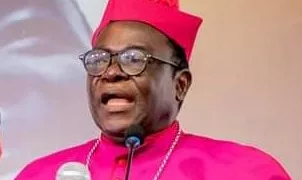On January 20, 2025, I had the opportunity to return to the Ijebu-Ode Grammar School (JOGS) Assembly Hall. It was the 112th anniversary of the founding of the great college that produced many notable Nigerians, particularly those of Ijebu origin. For most Ijebu parents and grandparents during my childhood, it was the foremost school, unrivaled in status. It ranked higher than any other college in Nigeria in the not-too-distant past.
I was filled with immense joy as I returned to the hallowed Hall to speak to current students about careers. This was the same Hall where a Western Region career speaker once advised me to study political science at university since I expressed the aspiration to become Nigeria’s Ambassador to France. That suggestion diverted me from my earlier ambition to follow in the footsteps of my role model, Chief Obafemi Awolowo, and become a politician. Ultimately, I chose academia, drawn by the relative freedom it offers.
I felt immense pride and gratitude for the invitation to speak to young students by Dr. Sunny Olu-Daniels, the current Vice President of the JOGS Old Boys Association (JOGSOBA). JOGS provided the solid foundation upon which I built my career. Returning to share my experiences with young students felt like a full-circle moment—a deeply cherished opportunity to inspire them to dream big and achieve greatness.
Years ago, I could hardly have imagined achieving so much, given my modest background. Sitting in those classrooms, I dreamed big but often wondered how to make those dreams a reality. That is why I returned to encourage the JOGS family (our principal at the time insisted we were a family) and inspire the young men. My speech was also relevant to youth more broadly.
My experience of coming full circle in a positive light, standing before the students was proof that one’s background does not necessarily define their future. Despite my parents’ financial struggles, I did not let that hinder my aspirations.
Rather than asking the students what careers they would like to pursue, as was the case during my time, I encouraged them to focus on the problems they are passionate about solving in the world at large. Today, the focus should no longer be limited to Nigeria. It is to the entire global village.
For me, “A worthy life requires a strive to lead change while upholding Omoluabi values: integrity, good character, civic-mindedness, and hard work.” This principle, articulated on January 1, 2025, aligns with a sentiment expressed by the late U.S. President Jimmy Carter: “We must adjust to changing times and still hold to unchanging principles.” The timeless Omoluabi values remain essential for a truly successful life.
A closer look at Omoluabi values begins with integrity, the bedrock of trust and respect. Integrity—olu-iwa—involves honesty, consistency, and doing the right thing, even when no one is watching. In a world of quick fixes and shortcuts, integrity helps build trust, both in one’s career and relationships. Corruption, which erodes integrity, is the antithesis of Omoluabi. It is destructive, harming society while benefiting selfish individuals who lack conscience.
Always ask yourself: Am I doing what is right? Am I upholding the Omoluabi value of integrity? Without integrity, talent, and skills alone cannot take one far.
Good character reflects who you are at your core. It encompasses kindness, humility, and treating others with respect and fairness. While technical skills and education are essential, they are incomplete without good character.
Civic-mindedness—known as Ubuntu in Zulu—is the drive to act for the greater good. Omoluabi teaches us to be responsible, selfless members of the community. Success is not just about personal achievements; it’s about lifting others as you rise. Being civic-minded involves actively contributing to the community through volunteering, mentoring, or advocating for positive change. It involves loyalty to the community.
Hard work is the way to success and the achievement of excellence. While talent may provide a head start, consistent hard work sustains progress. Omoluabi reminds us that diligence, resilience, and perseverance are non-negotiable for success.
The Yoruba value system encapsulated in Omoluabi emphasises empathy and exemplary character in society. This ethos, rooted in integrity, good character, civic-mindedness, and hard work, contrasts sharply with the egoistic, competitive mindset often associated with Western values.
Omoluabi in the Modern World
Let us connect Omoluabi values to the realities of the 21st century:
• Integrity in Technology: As AI and robotics transform industries, ethical decision-making will distinguish you. Employers seek individuals they can trust to manage sensitive data and navigate moral dilemmas in an evolving digital landscape.
• Good Character in Globalization: In a connected world, emotional intelligence and cross-cultural communication are vital. Respect for diverse perspectives opens doors to international collaborations.
• Civic-Mindedness in Sustainability: Issues like climate change, poverty, and inequality require leaders who prioritize societal challenges over profits, positioning themselves as changemakers.
• Hard Work in Lifelong Learning: The job market evolves rapidly. To stay relevant, you must continually learn, adapt, and innovate. Hard work ensures you are never left behind.
Your generation is growing up in a transformative era defined by technological advancements like AI, robotics, and renewable energy. These tools are solving real-world problems, from predicting conflicts to enhancing agricultural efficiency. However, this exciting world presents challenges, including criticisms that traditional education has not kept pace with modern demands.
Some argue that education is a “scam,” but the truth is that education, beyond mere certifications, enhances life’s journey. Quality education, combined with its application, makes a difference. Success increasingly depends on combining education with practical skills.
The Federal Government’s decision to integrate 15 skill acquisition courses into the curriculum for primary and junior secondary schools is a bold and commendable step. Starting in 2025, students will learn practical skills like plumbing, digital literacy, and solar panel installation alongside theoretical knowledge. These skills will empower students to create value and earn a living at a young age.
Despite technological advancements, human initiative, creativity, and critical thinking remain irreplaceable. A balance between technical knowledge and soft skills is essential. For example, industries like Nollywood succeed because professionals blend storytelling with business acumen. Similarly, global tech giants rely on individuals who understand human behavior and culture to create impactful products.
The addition of practical skill courses to the curriculum offers a golden opportunity. By combining formal education with marketable skills, you will enhance your career prospects in a competitive world. For example, learning digital literacy and robotics can position you at the forefront of tech innovation, while mastering agriculture or alternative energy solutions can address global challenges.
A Word of Encouragement
As you navigate your path, embrace change focus. Be disciplined, treat others with respect, and always aim for excellence. Do not forget the cherished principle of being guided by the Omoluabi principles. I was fortunate to meet people early in life who helped me avoid the greed that began to pervade Nigeria in the 1980s. I salute the memories of individuals like the late Prof. Adebayo Adedeji, a product of JOGS who led the realisation of the National Youth Service Corps and the Economic Community of West African States. Also, inspirational Dr. Abiodun Osinubi, a civic-minded, anti-greed model and an exemplary Omoluabi was produced by JOGS.
Though my parents could not afford my Higher School Certificate, I received critical support from my former teacher, Tony Finch, and Principal Rev. N.E. Ade Osisanya. Their insistence that I continue my education made a lot of the difference. The Western State automatic bursary for all students from the state and the Federal Merit Award made University study easier.
Your generation has boundless potential. The future is yours to shape, making Nigeria and the world a better place. Embrace the opportunity to lead and effect change.
Badejo, author of a best-seller on politics in Kenya, was a former Deputy Special Representative of the UN Secretary-General for Somalia and is currently a Legal Practitioner, member of the NBA National Executive Council 2024-26, and Professor of Political Science & International Relations at Chrisland University, Abeokuta. Nigeria.





